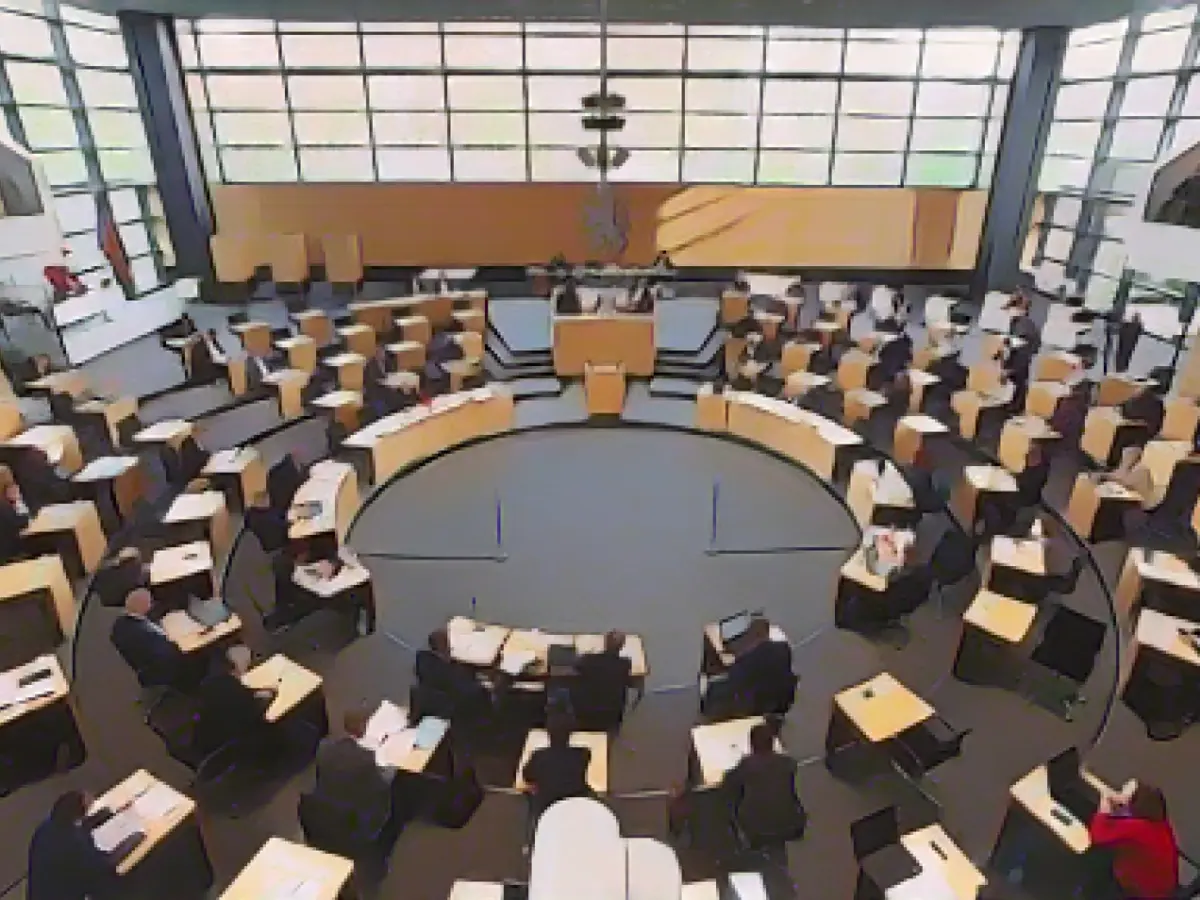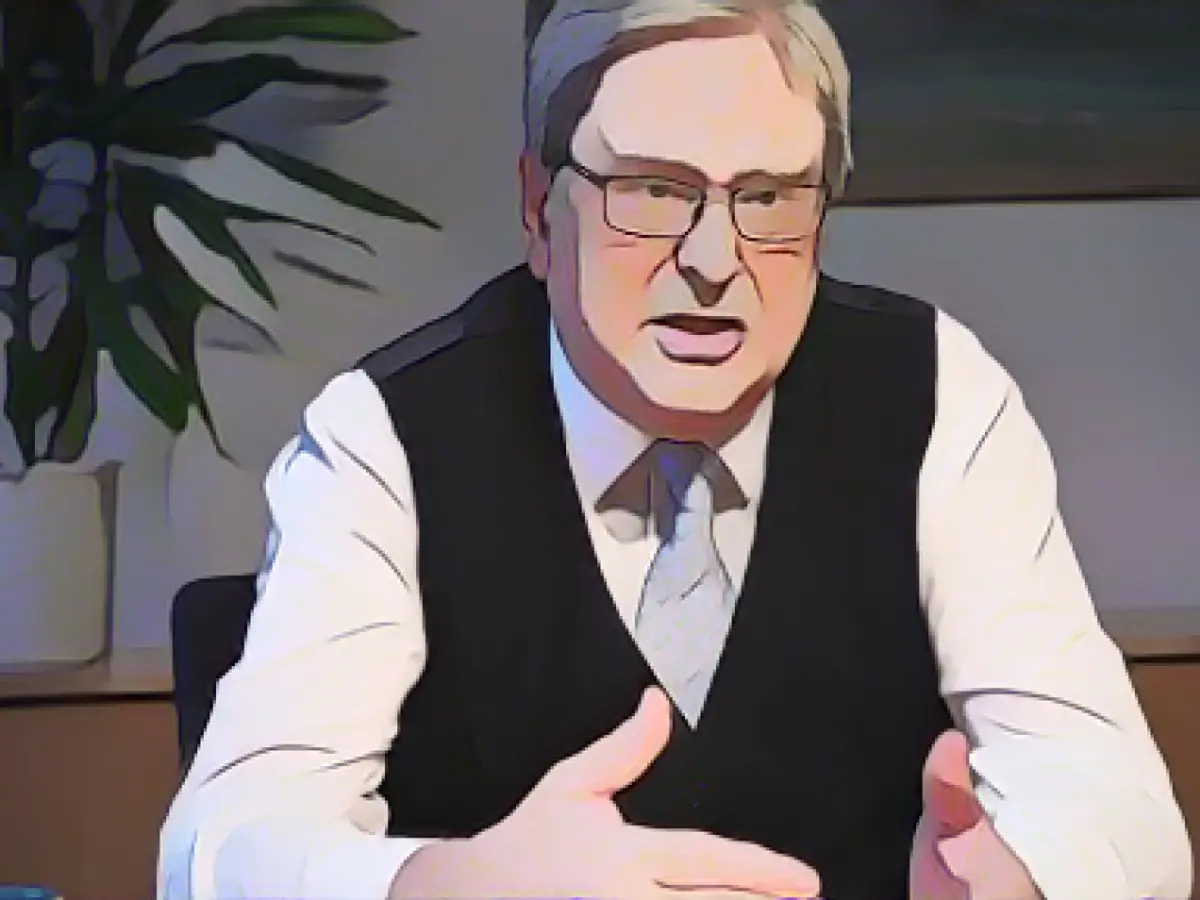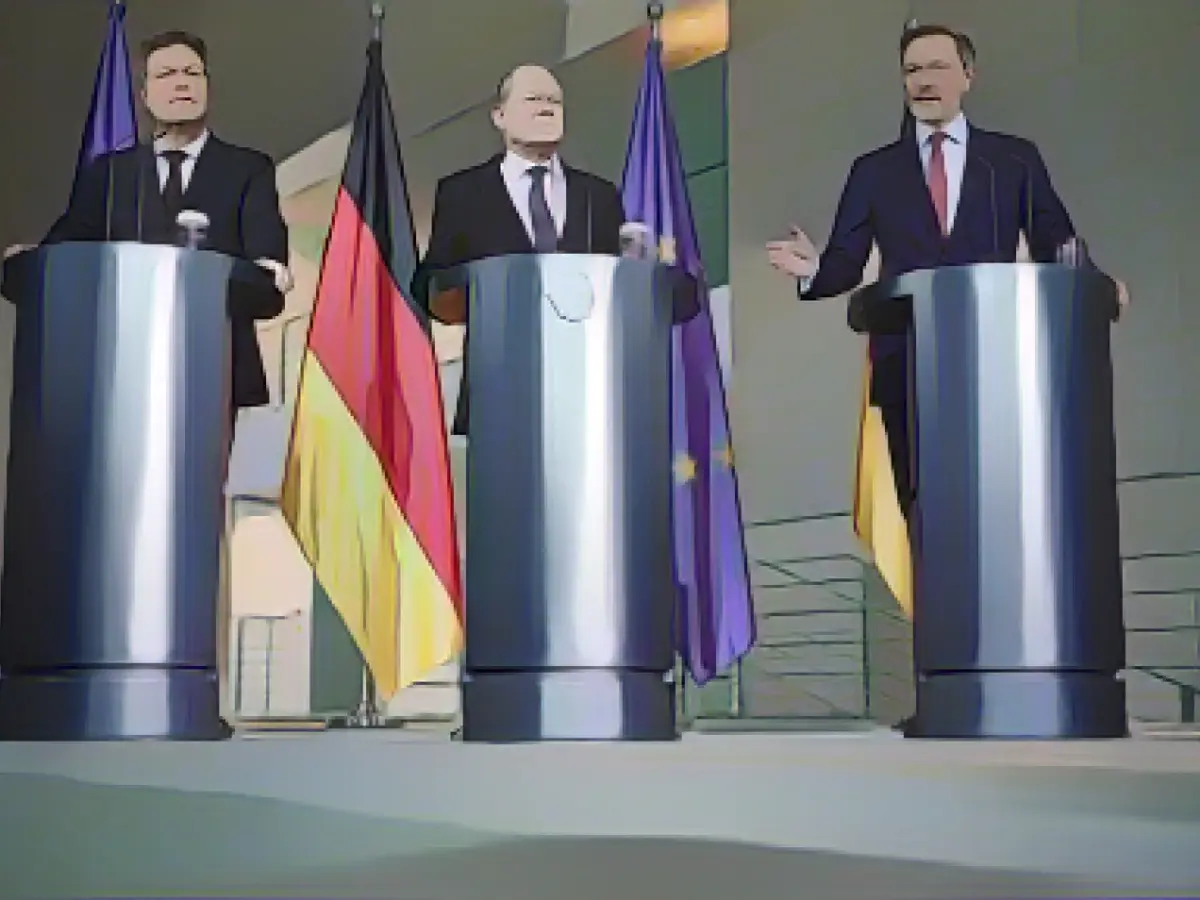Federal government's popularity takes a nosedive
It's not all sunshine and roses for the federal government these days. Following a heated budget debate, public opinion of our political leaders has hit new lows, according to the latest "Politbarometer" survey by ZDF. The coalition government is now performing worse than ever before, with only 27% of people approving of their job performance - a stark contrast from the 50% support seen back in March.
While supporters of the SPD and the Greens continue to give the government the thumbs up, those who back the coalition's other parties are less than impressed. Even among the FDP's loyal base, only 22% approve of the traffic light coalition's work. And it's not just disgruntled voters who're pointing fingers; only 35% of all respondents believe that a CDU/CSU-led federal government would do any better.
Chancellor Olaf Scholz finds himself standing in the political hot seat. His approval rating plummeted to -1.0 in the Politbarometer, down from a previously mediocre -0.4 score in November. On the flip side, CDU leader Friedrich Merz isn't currently the favorite among the general population. With a measly 16% in the running, he trails behind CSU leader Markus Söder (28%) and NRW Minister President Hendrik Wüst (20%) on the polling charts.
But why the sudden drop in popularity? Let's take a closer look at some of the factors contributing to this political shift.
Hitting (economic) rock bottom
Germany's economy has taken a hit over the past few years, which could explain some of the public's dissatisfaction. After two straight years of no significant growth, many Germans are feeling the pinch of stagnant living standards - a situation that hasn't been seen since the 2008 financial crisis.
Throw in a manufacturing sector teetering on the brink of collapse, coupled with the energy price shock brought about by Ukraine's invasion, and it's no wonder that the economic outlook isn't particularly rosy. Add that to a housing crisis that's left people feeling priced out of the market, and it's easy to see why public confidence in the government is plummeting.
Keeping faith: or losing it
People's trust in the government is at an all-time low, with only 50% of respondents expressing confidence in the German government in 2024 - a stark contrast from the 65% approval rating seen in 2020. This is just one more factor contributing to the decline in public esteem for the federal government.
Polarization and political turbulence
As Germany moves away from centrist politics, the country is increasingly becoming polarized. And with both extremes exploiting sensitive issues like migration and economic scarcity, political tensions are escalating. No wonder the streets are filled with protests and political angst is the order of the day.
Sluggish governance and lack of change
According to a scientific report by the Berggruen Governance Index (BGI), Germany's political and administrative systems have become unresponsive and unable to keep up with the pace of change. This stagnation has led to a slow, gradual decline in governance performance over the years - but the public hasn't been asleep at the wheel, and they're showing their disapproval with their ballots.
Switching horses mid-stream
The collapse of the three-party coalition between the SPD, Greens, and Liberals in November 2024 has only added to the political instability and further damaged public confidence in the government.
Looking to the future
Only time will tell if these factors will persist or whether the German public will turn the tide. As our political leaders navigate these challenges, it's crucial for them to stay connected to their constituents and address the concerns that have led to this downturn in public opinion.








